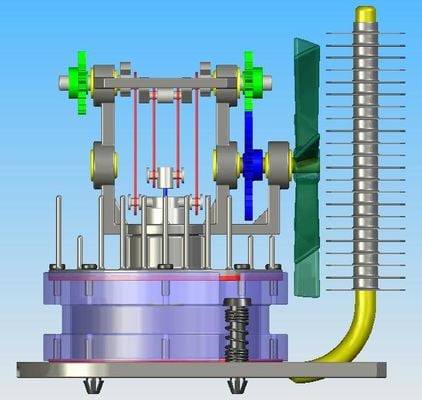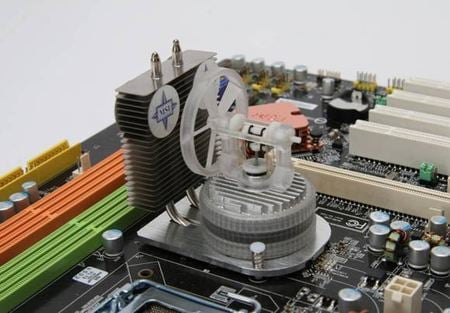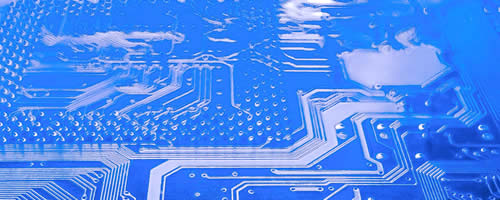MSI motherboard transforms chipset heat into fan power
MSI’s main theme for this year’s CeBIT is “ECOlutionâ€, short for eco-friendly and environmental evolution. The company will be showcasing their next-generation Intel 4 series motherboards, a green concept notebook designed with Anion technology, a gaming series notebook with Turbo Battery Energy-Saving Technology and a selection of low-cost PCs.
But what MSI hopes will really catch the eye is its new electricity-less motherboard fan concept, which is powered only by heat and air. Dubbed the “Air Power Cooler,†this unique prototype operates on the Stirling Engine Theory to transform the thermal output of a chipset into the kinetic energy necessary to power that same chipset’s fan and consequently cooling its heatsink.
MSI’s air power cooler will reportedly transfer over 70% heat power into air power. While this is all good news on the green-front, it’ll be interesting to test this concept with hotter components such as a CPU. MSI hopes to turn this early concept into mass production in the near future.
>
MSI’s main theme for this year’s CeBIT is “ECOlutionâ€, short for eco-friendly and environmental evolution. The company will be showcasing their next-generation Intel 4 series motherboards, a green concept notebook designed with Anion technology, a gaming series notebook with Turbo Battery Energy-Saving Technology and a selection of low-cost PCs.
But what MSI hopes will really catch the eye is its new electricity-less motherboard fan concept, which is powered only by heat and air. Dubbed the “Air Power Cooler,†this unique prototype operates on the Stirling Engine Theory to transform the thermal output of a chipset into the kinetic energy necessary to power that same chipset’s fan and consequently cooling its heatsink.
MSI’s air power cooler will reportedly transfer over 70% heat power into air power. While this is all good news on the green-front, it’ll be interesting to test this concept with hotter components such as a CPU. MSI hopes to turn this early concept into mass production in the near future.
>






 Fractal Design Arc Mini R2, 3800X, Asus B450M-PRO mATX, 2x8GB B-die@3800C16, AMD Vega64, Seasonic 850W Gold, Black Ice Nemesis/Laing DDC/EKWB 240 Loop (VRM>CPU>GPU), Noctua Fans.
Fractal Design Arc Mini R2, 3800X, Asus B450M-PRO mATX, 2x8GB B-die@3800C16, AMD Vega64, Seasonic 850W Gold, Black Ice Nemesis/Laing DDC/EKWB 240 Loop (VRM>CPU>GPU), Noctua Fans.
Comment